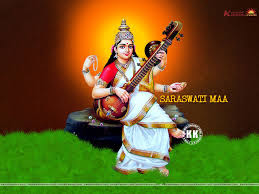THE MISSION OF THE VEDANTA :8.
Every one of the great religions in the world excepting our own, is built upon such historical characters; but ours rests upon principles.
There is no man or woman who can claim to have created the Vedas.
They are the embodiment of eternal principles; sages discovered them; and now and then the names of these sages are mentioned — just their names; we do not even know who or what they were.
In many cases we do not know who their fathers were, and almost in every case we do not know when and where they were born.
But what cared they, these sages, for their names?
They were the preachers of principles, and they themselves, so far as they went, tried to become illustrations of the principles they preached.
At the same time, just as our God is an Impersonal and yet a Personal God, so is our religion a most intensely impersonal one — a religion based upon principles — and yet with an infinite scope for the play of persons; for what religion gives you more Incarnations, more prophets and seers, and still waits for infinitely more?
The Bhagavatam says that Incarnations are infinite, leaving ample scope for as many as you like to come.
Therefore if any one or more of these persons in India's religious history, any one or more of these Incarnations, and any one or more of our prophets proved not to have been historical, it does not injure our religion at all; even then it remains firm as ever, because it is based upon principles, and not upon persons.
It is in vain we try to gather all the peoples of the world around a single personality.
It is difficult to make them gather together even round eternal and universal principles.
If it ever becomes possible to bring the largest portion of humanity to one way of thinking in regard to religion, mark you, it must be always through principles and not through persons.
Yet as I have said, our religion has ample scope for the authority and influence of persons.
There is that most wonderful theory of Ishta which gives you the fullest and the freest choice possible among these great religious personalities.
You may take up any one of the prophets or teachers as your guide and the object of your special adoration; you are even allowed to think that he whom you have chosen is the greatest of the prophets, greatest of all the Avatâras; there is no harm in that, but you must keep to a firm background of eternally true principles.
The strange fact here is that the power of our Incarnations has been holding good with us only so far as they are illustrations of the principles in the Vedas.
The glory of Shri Krishna is that he has been the best preacher of our eternal religion of principles and the best commentator on the Vedanta that ever lived in India




Comments